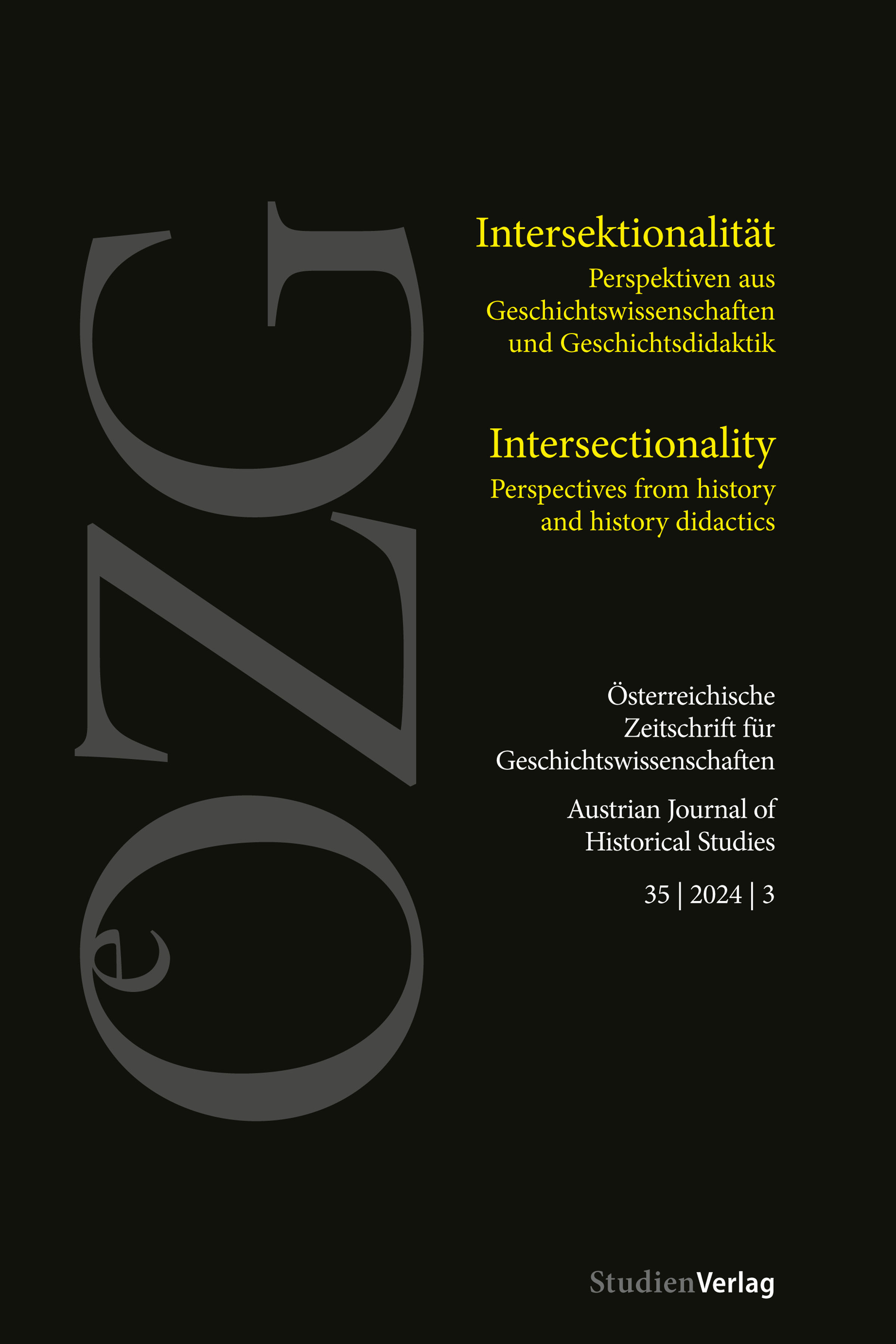Unerhörte Bildungsbiografien 1812–1869
Warum es eine teilpartizipative Methode und Erfahrungswissen in der intersektionalen Dis/ability History braucht
DOI:
https://doi.org/10.25365/oezg-2024-35-3-7Schlagworte:
partial participation, disability, intersectionalityAbstract
This paper calls for new historical methods to study disability from an intersectional historical perspective. The Linz “Institute for the Deaf and Dumb” serves as a case study with two nineteenth-century micro-biographies and a new semi-participative method involving the deaf community. The article aims to show to what extent the experiential knowledge of those affected can add value to the interpretation of disability history. The experiential knowledge is collected through a semi-participatory process. The procedure and the theoretical background are described and applied in the article.
Downloads
Veröffentlicht
Zitationsvorschlag
Ausgabe
Rubrik
Lizenz
Copyright (c) 2024 Österreichische Zeitschrift für Geschichtswissenschaften

Dieses Werk steht unter der Lizenz Creative Commons Namensnennung 4.0 International.


